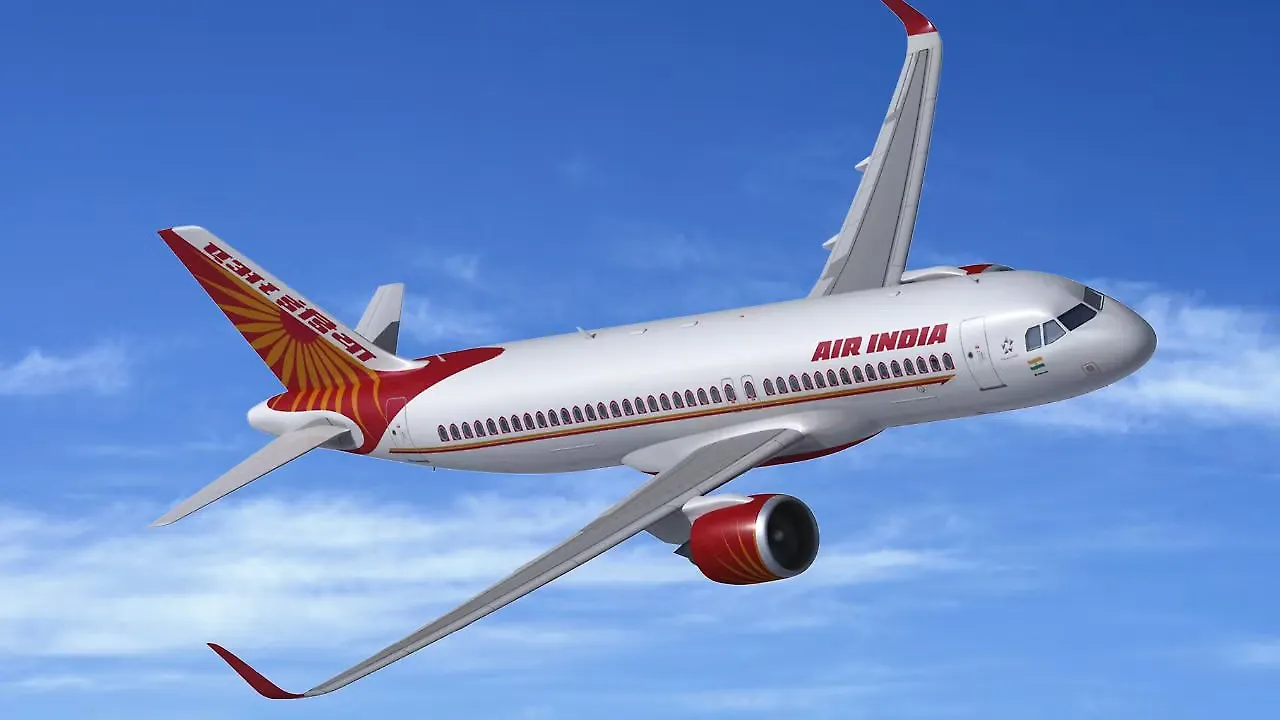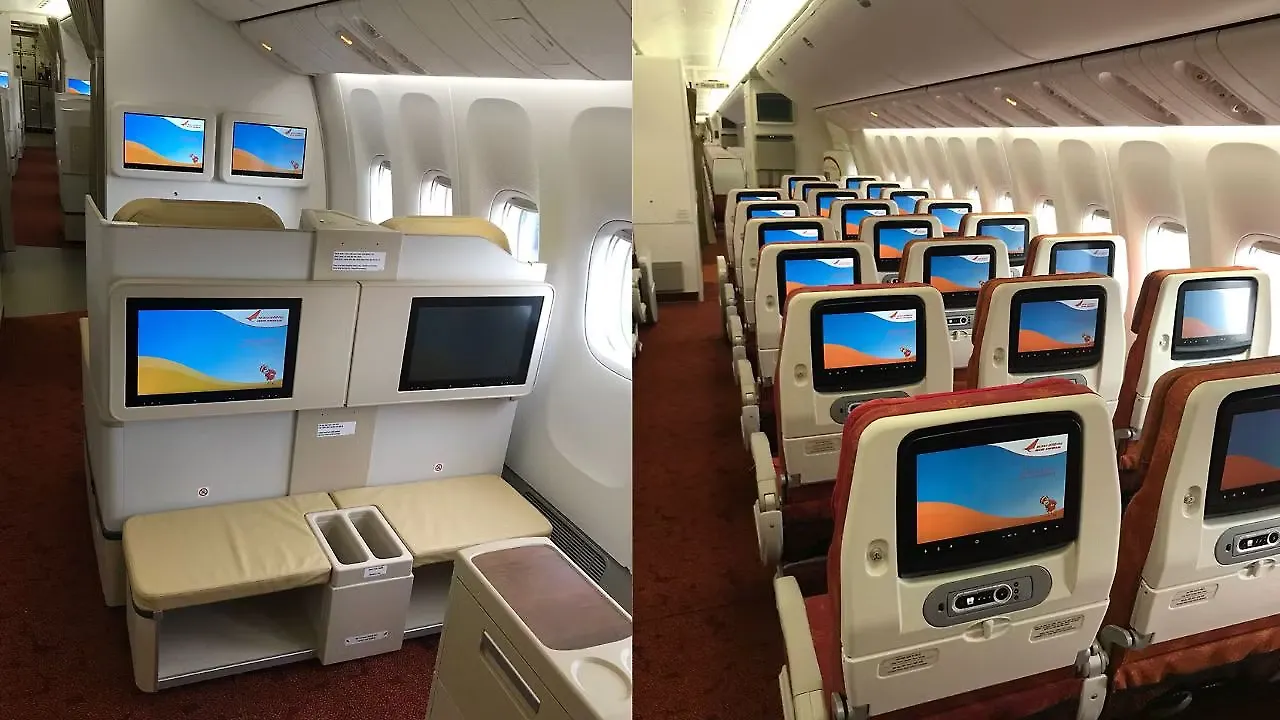
Air India Group will be inducting 30 new widebody jetliners over the next 15 months. This marks the airline’s first major fleet expansion since Tata Group took over in January 2022. The induction of these additional aircraft will provide Air India with much-needed extra capacity on its international and domestic routes.
Campbell Wilson, CEO & Managing Director, Air India, said, “After a long time without significant growth, Air India is delighted to resume expanding its fleet and global footprint. These new aircraft, together with existing aircraft being returned to service, address an immediate need for more capacity and connectivity, and mark a strong step forward. Air India has exciting expansion and renewal plans, of which these new aircraft are just the beginning.”
Air India’s existing fleet comprises Boeing 777-200LR, 777-300ER and 787-800 Dreamliners, in addition to Airbus A319, A320, A320Neo and A321 aircraft. The airline’s single-aisle jetliner fleet now stands at approximately 70 aircraft, of which 54 are in service. The remaining 16 aircraft will progressively return to service by early 2023.
Fleet Revamp
Air India has already entered into lease agreements and Letters of Intent (LoI) for these new aircraft, the first of which will enter service in December. The induction of these aircraft over a period of 15 months will increase the airline’s fleet by over 25%.
Air India will add 25 new Airbus single-aisle jetliners and five Boeing twin-aisle jetliners, all of which will be on lease. The aircraft to be inducted comprise 21 Airbus A320neos, four A321neos and five Boeing B777-200LRs. These new aircraft add to ten single-aisle jetliners, which are returned to service after being grounded for a long time. Six of Air India’s twin-aisle jetliners are also being returned to service.
Air India is slated to induct four A321neos by Q123. Deliveries of the remaining 21 A320neos will conclude in the latter half of 2023. It will deploy these new aircraft in domestic sectors and short-haul international destinations.
With Air India looking to rapidly increase its capacity on international routes, the first of the new B777-200LRs will join its fleet starting in December 2022. The remaining four aircraft will be inducted by the airline by March 2023. Importantly, for Air India, these new B777-200LRs will also feature Premium Economy cabins, which is a first for the airline.

The new widebody jetliners will cater for Air India’s expansion into the lucrative US market. Air India will add flights from Mumbai to San Francisco and the New York area’s international airports - Newark Liberty and John F Kennedy. It will also allow Air India to upgrade Bengaluru thrice weekly direct flights to San Francisco.
Air India has been troubled by the lack of availability of its widebody jetliner fleet. Though its entire fleet of twin-aisle jetliners stands at 43 aircraft, only 33 are operational. This number was even lower sometime back when only 28 of the 43 aircraft fleet were operational. Air India is expected to have its entire widebody jetliner fleet operational by 2023, in addition to the five aircraft it is inducting on lease by March that same year.
Network Expansion
Air India’s current international network spans the USA, Canada, UK, Europe, Far-East, South-East Asia, Australia and the Gulf. In September, it announced the addition of 20 new international flights per week to Qatar’s capital Doha from Mumbai, Hyderabad and Chennai. This will allow Air India to cater to the demand surge expected around November-December for the 2022 Football World Cup. Air India will commence these flights on October 30, adding to its daily flights from Delhi to Doha.
Air India has also increased the frequency of its flights from Delhi to Vancouver, Canada, since end-August. It now operates daily flights in this sector instead of the thrice-weekly service previously. “This increase in our frequency between Delhi and Vancouver is very welcome for many reasons. It is another sign of recovery from the pandemic and caters to strong customer demand. More importantly, it marks the first step in restoring Air India’s fleet and international network,” Wilson had said while announcing the network expansion. Air India was able to cater for this frequency expansion due to the return to service of one of its Boeing 777-300 ER aircraft which is configured in a three-class layout with First, Business and Economy.
Air India also has an extensive domestic network, which extends to India’s North-East, Ladakh, Andaman & Nicobar Islands. In September, it announced an increase of 24 flights on its domestic network. These included two new frequencies on each of the Delhi-Mumbai, Delhi-Bengaluru and Mumbai-Chennai routes and one new frequency on the Mumbai-Bengaluru route.
Consolidating Workforce
Earlier this month, Tata Group announced that Air India, Air India Express and AirAsia India would move to the newly-constructed Vatika One-on-One campus in the National Capital Region (NCR) by March 2023.
According to Dr Satya Ramaswamy, Air India’s Chief Digital and Technology Officer, “Air India is reimagining its employee experience to attract, retain and encourage top-notch talent and such a transformation of required constant communication and collaboration amongst its diverse employee base that would contribute to organisational alignment.”

Air India also has a large female workforce, comprising over 30% of the airline’s strength. The airline has over 200 woman pilots in addition to aircraft engineers & senior directors. Air India’s woman pilots and crew hold the distinction of flying the longest around-the-world all-women crew flight on the Delhi-San Francisco-Delhi sector. Female employees are also an integral part of Air India’s cabin crew, engineering units, ramp, office desks, etc.
Air India Express In Growth Mode
Air India Group’s international budget carrier, Air India Express (AIEX), is also eyeing a fleet expansion. It has an all-Boeing fleet of 24 737-800 Next Generation (NG) single-aisle jetliners. One would imagine that upgrading to Boeing’s new 737 MAX jetliners would be a logical move for the budget carrier, keeping in mind fleet commonality for training and maintenance. AIEX operates on short and medium-haul routes connecting smaller towns in India directly to the Gulf and South East Asia regions. It is the market leader in the LCC segment in the Gulf/Middle East region.
In July, AIEX became the first Indian international budget airline to renew its registration under the prestigious IATA Operational Safety Audit (IOSA) programme. The registration was renewed after a rigorous assessment of the airline's operational management and control systems under an internationally benchmarked audit carried out by IATA. The audit covers approximately 1,000 standards and recommended practices related to the safety of operations, maintenance and engineering and the airline's procedures. This was also one of the first on-site audits post-pandemic.
AIEX also has a high proportion of females in its workforce, with approximately 40% women. Women also undertake many key operational roles in AIEX related to flight dispatch, engineering, flight safety, etc.